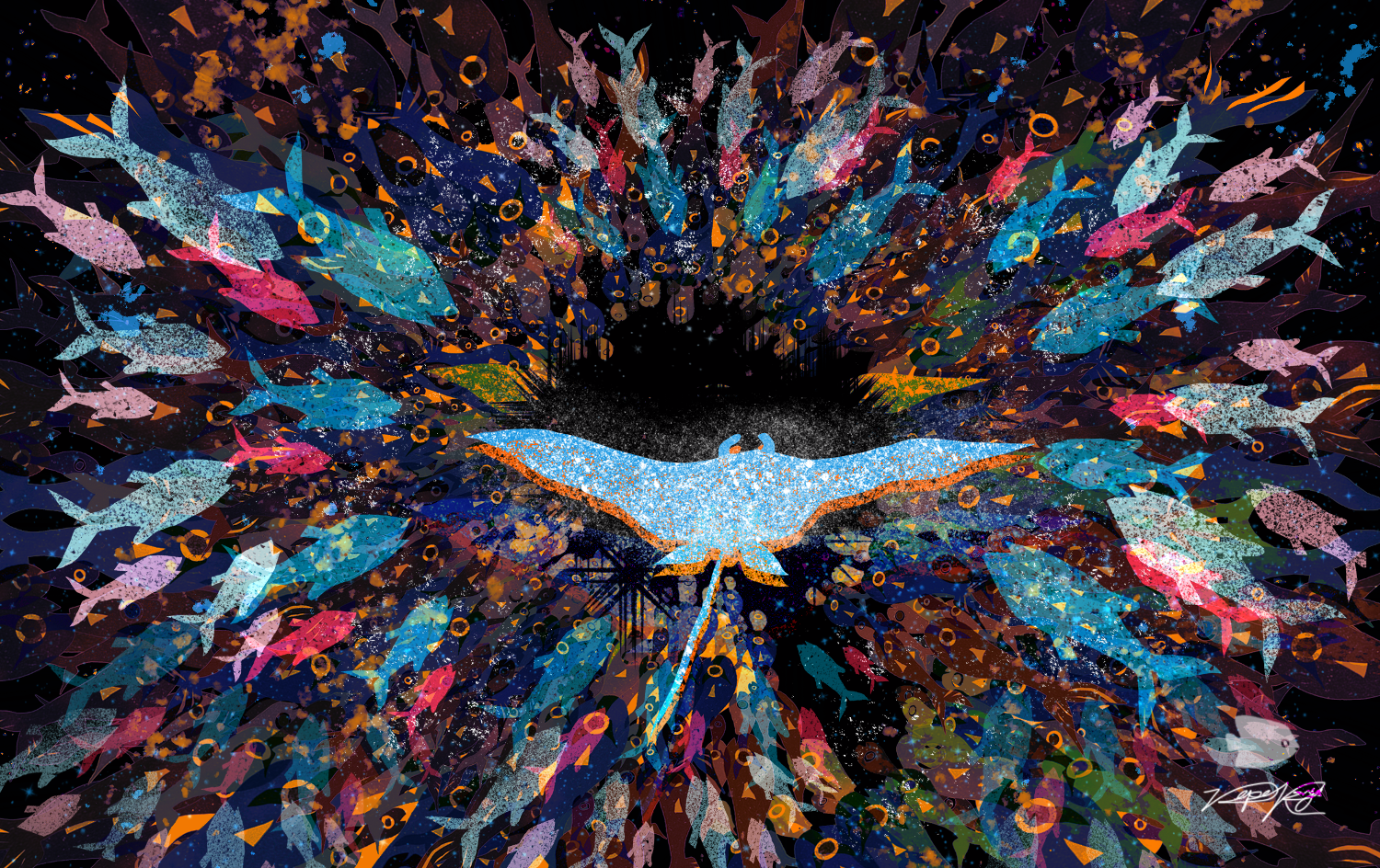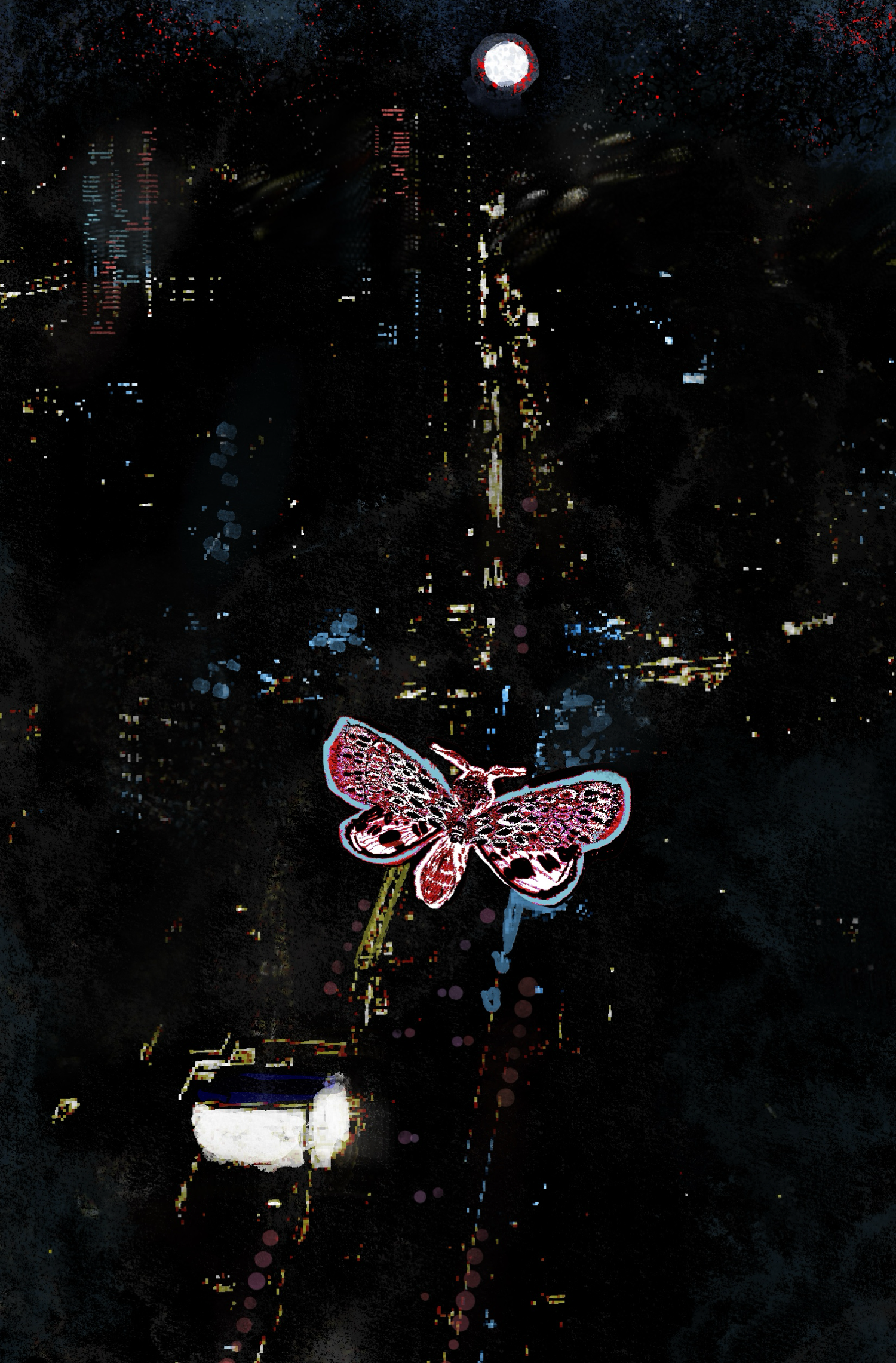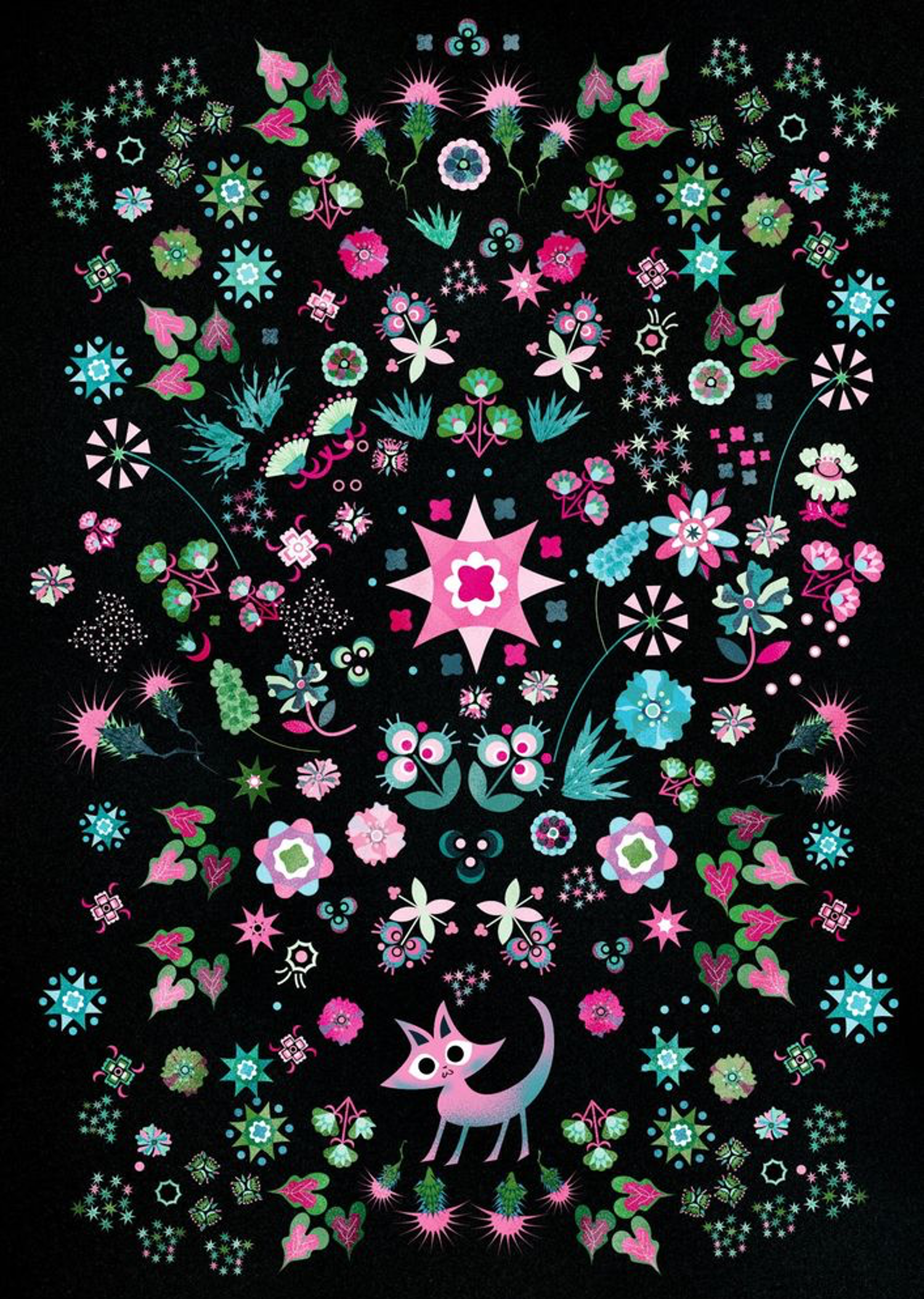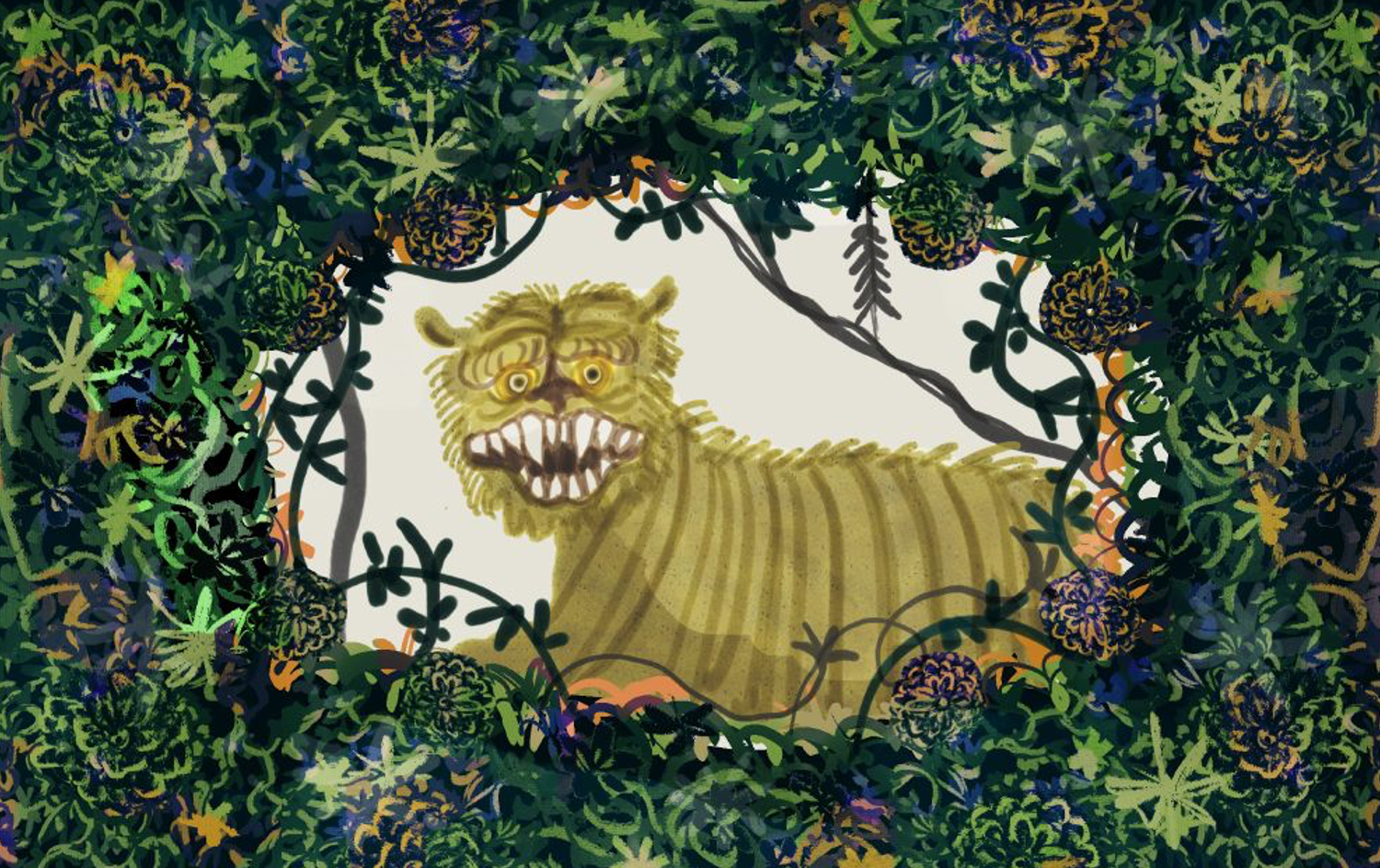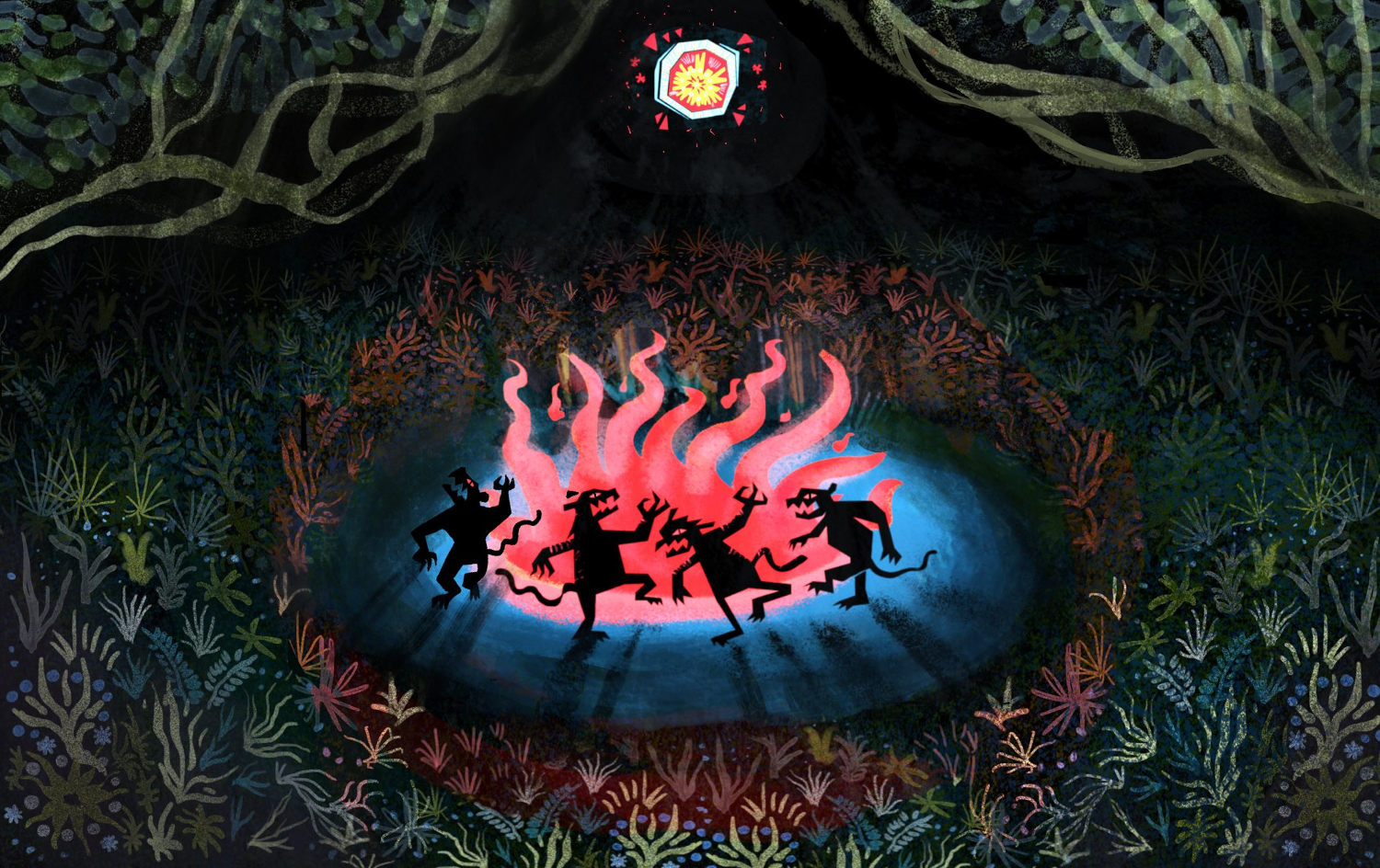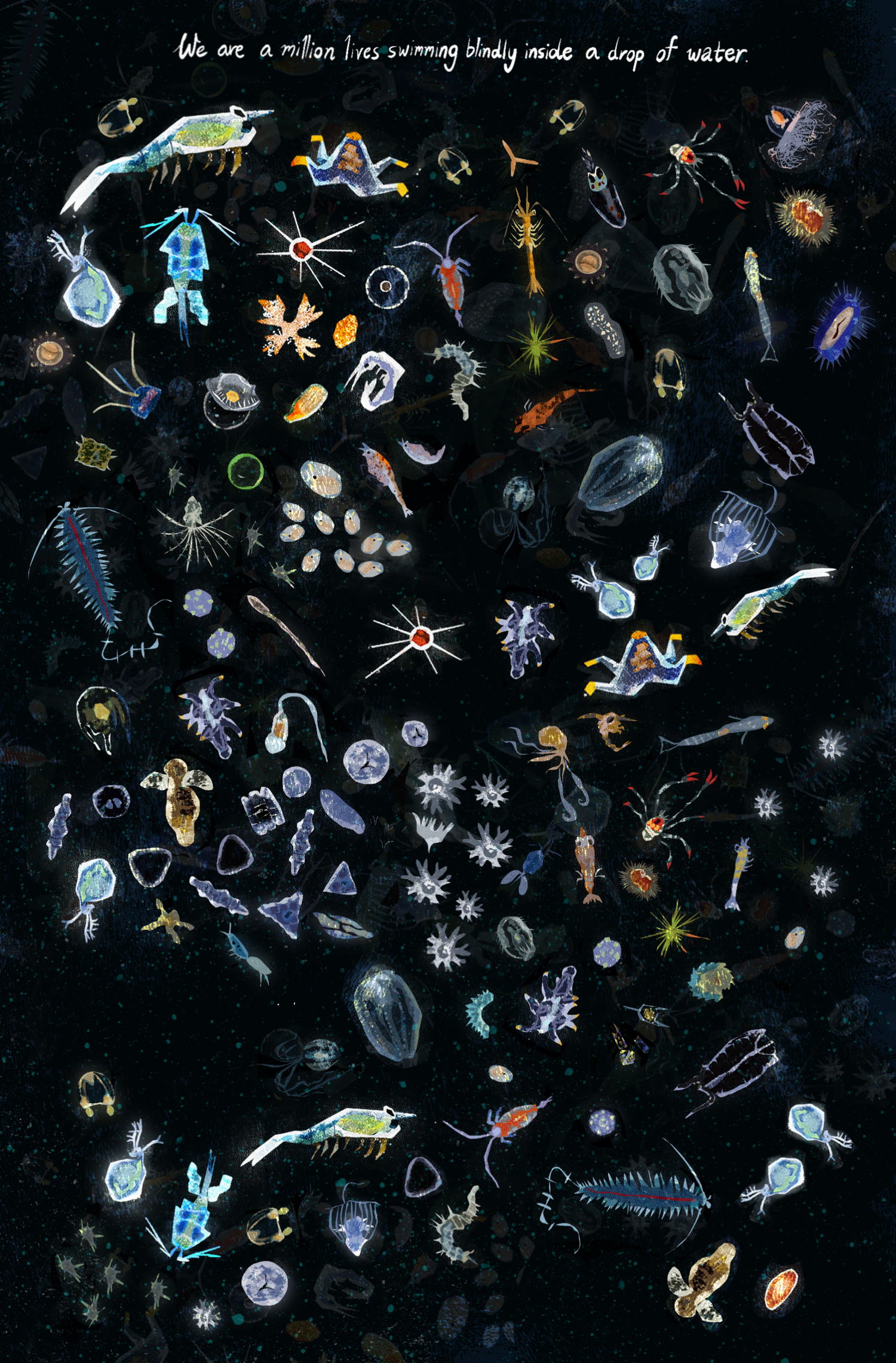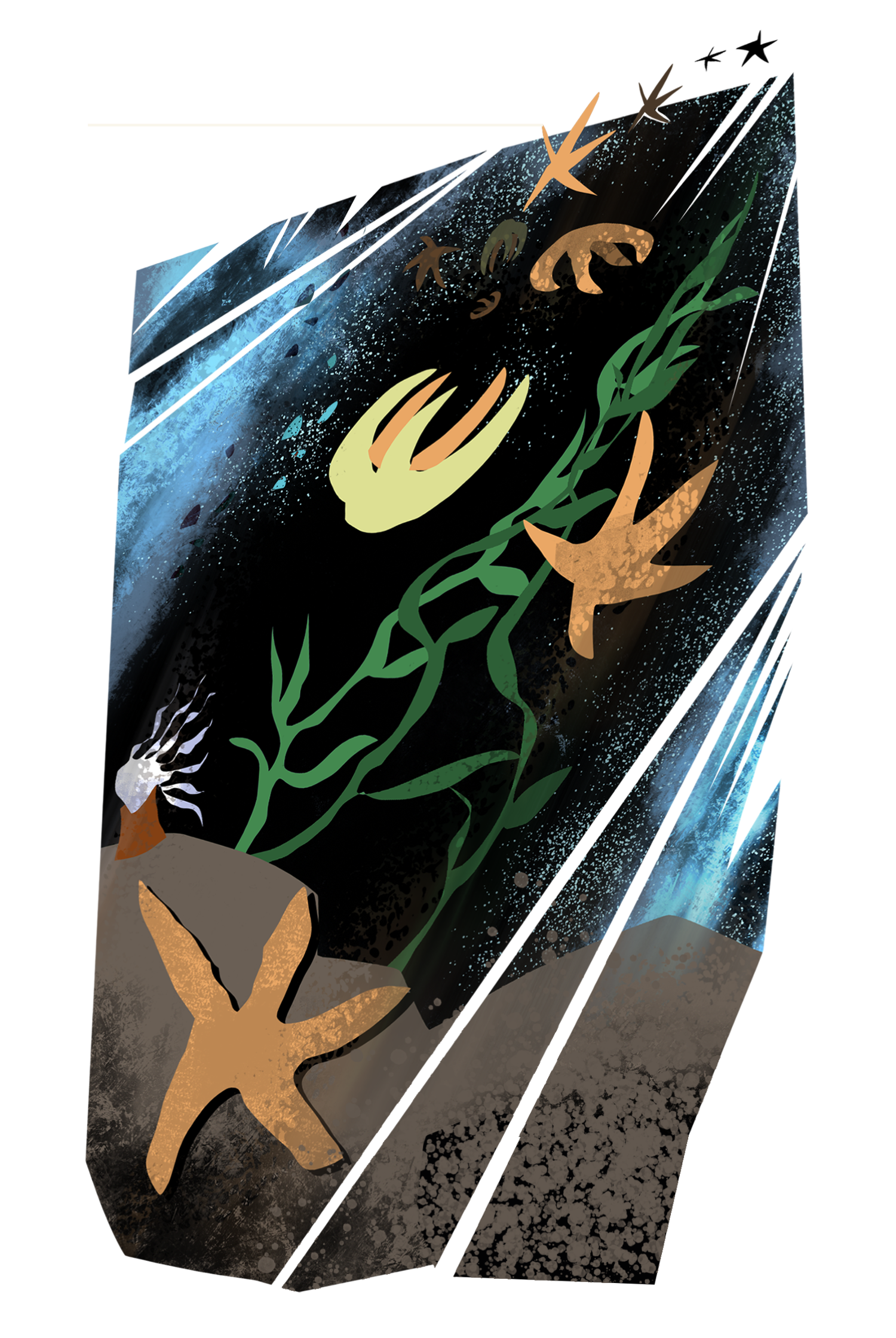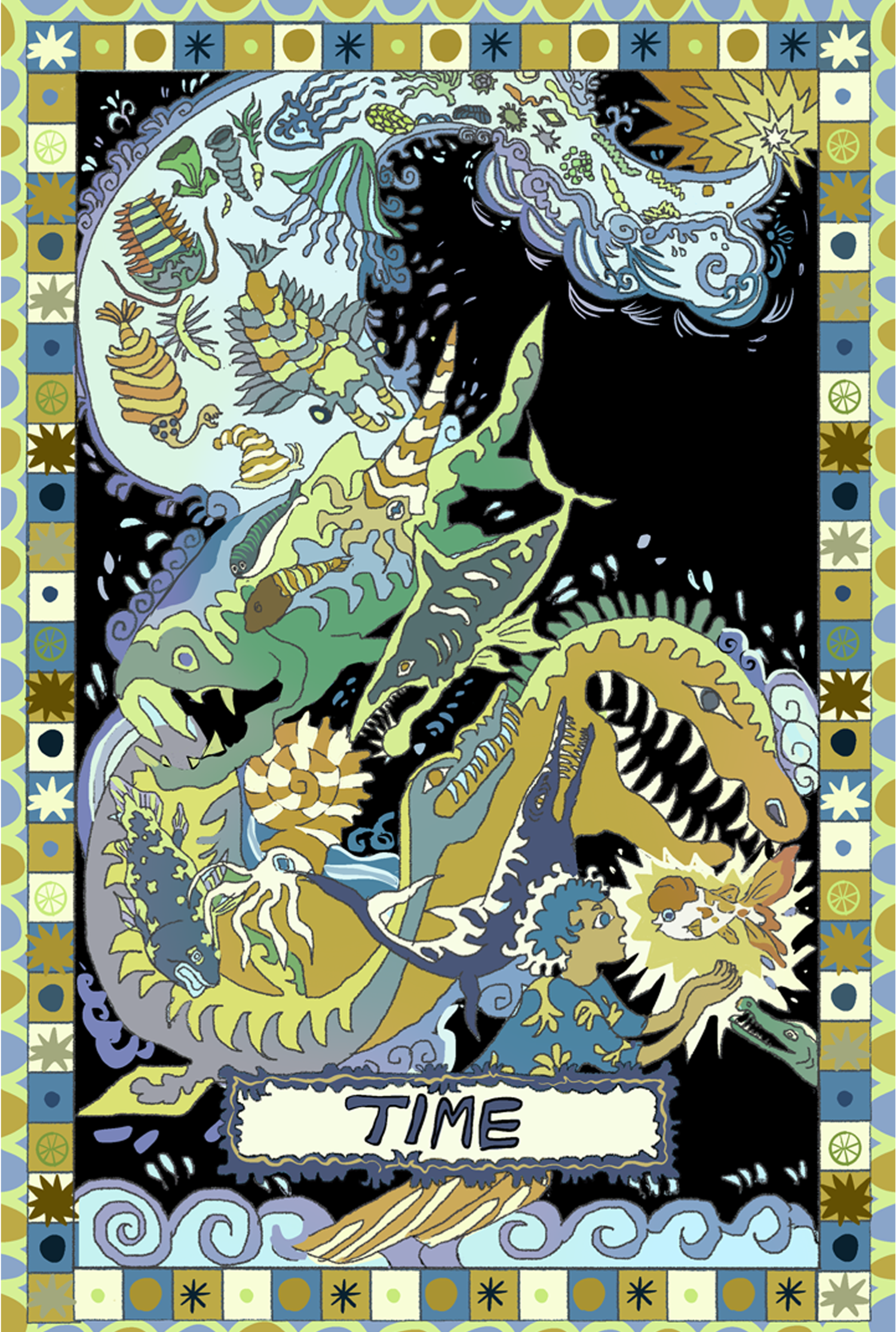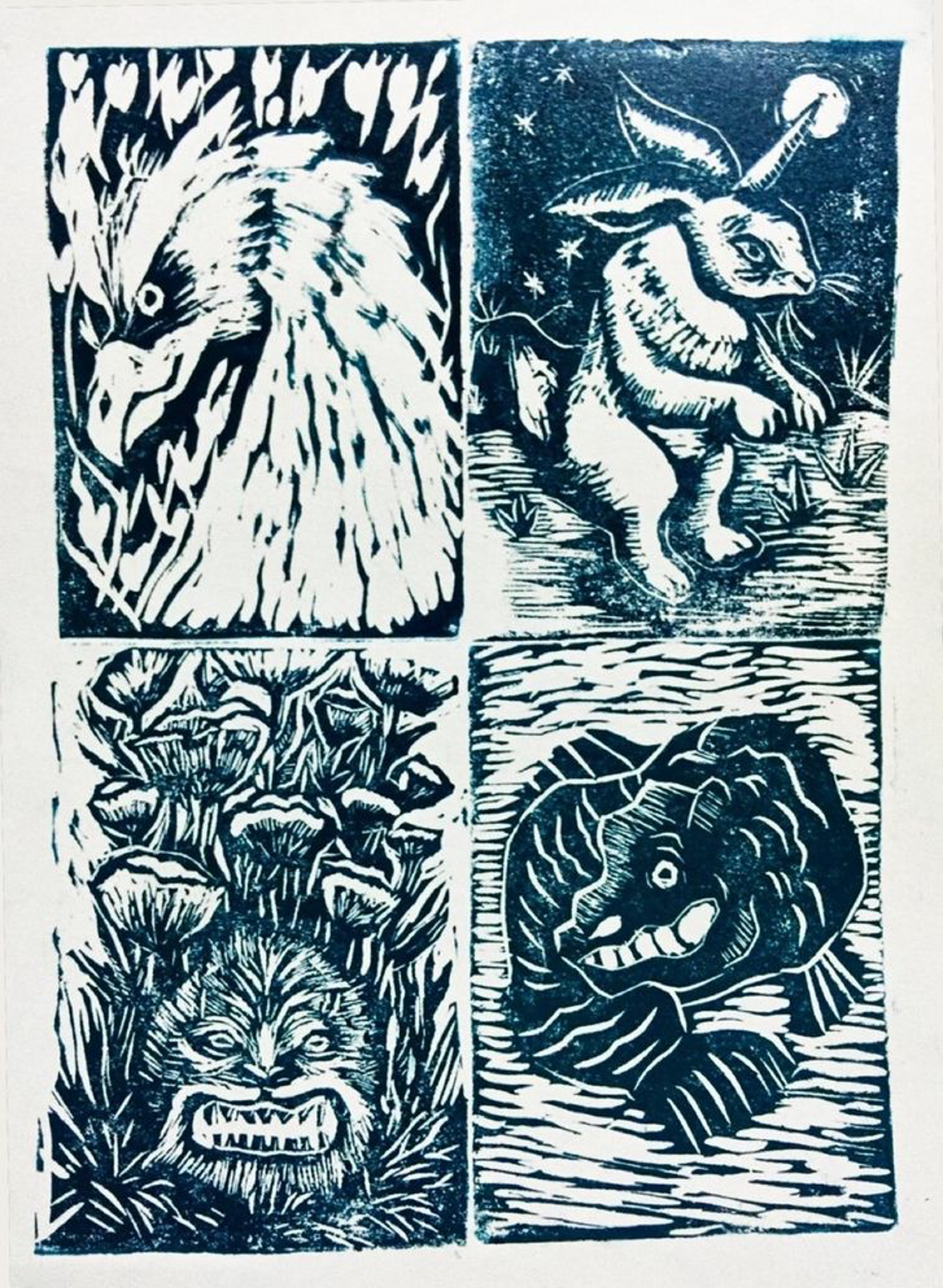Introduction and Interview Gabrielle de la Cruz
Images suscipepe
There is a quote I like by feminist and civil rights activist Audre Lorde: “It is not our differences that divide us. It is our inability to recognize, accept, and celebrate those differences.” It captures universal truths—races, genders, disciplines, and sometimes, even the personal, distinct values we hold dear. Illustrator suscipepe’s work is centered on this principle. “I believe that we’re all just strange beings trying to find peace—and our place—in this chaos.” Drawing inspiration from monsters and mythical creatures, the artist explores the feeling of being othered, reminding the world that beauty can bloom in unexpected places.
We continue our Pride Month 2025 special with a conversation on this message, hoping to share that while the world may misunderstand or even make us feel isolated, we belong. There are spaces and places to come home to.
Our conversation with Pepe reads:
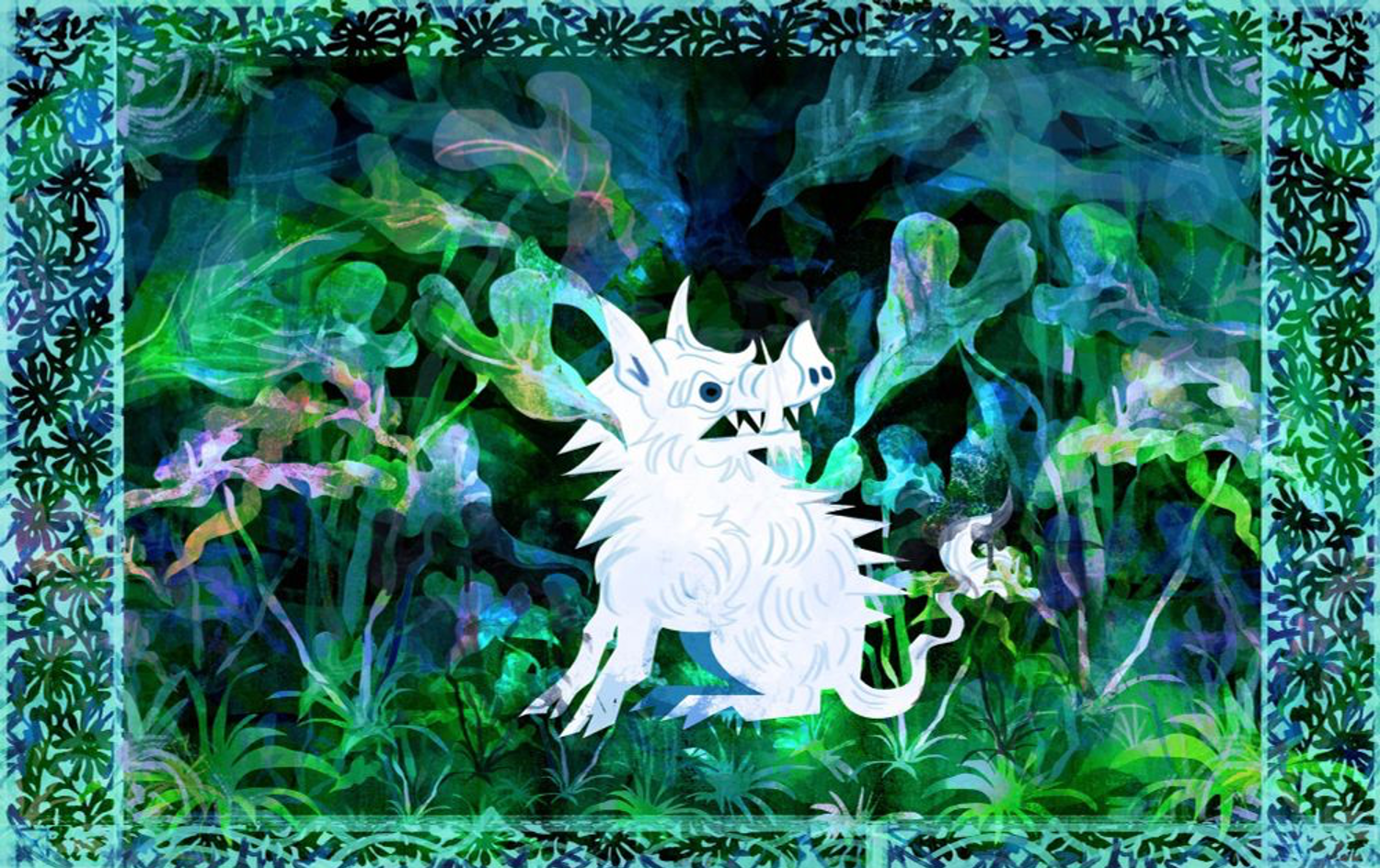

Welcome to Kanto, Pepe! How have you been since Kittybug and Friends? What events have been keeping you busy lately?
Thank you for this interview, Gabbie! Nice to chat with you again! Day job duties keep me busy, but outside of that, I’ve been devoting most of my energy to my upcoming graphic novel for this year’s ShortBox Comics Fair. It’s an online all-digital fair in October with artists from all around the world. I’m thrilled to participate and showcase my work!
Your work is rooted in natural, mythical, and mystical themes. Can you tell us where your exploration of these stems from? Was there a particular influence or inspiration?
I grew up craving a connection with the natural world. Socializing didn’t come easily, but I always found comfort in watching animals and plants just exist—how they live their lives without explanation or judgment. In moments of loneliness or distress, that quiet presence filled me with wonder and reminded me that I was part of something bigger.
I also resonated deeply with monsters and mythical creatures. TW: I often felt like a monster myself, physically and emotionally. I felt like I didn’t quite fit in. That feeling shaped the way I see the world, and then my work: vibrant, chaotic scenes filled with wild creatures. I’d like to say that this is what life looks like to me now—messy, colorful, tangled, and full of force.
Other artists I look up to are graphic novelist Brecht Evens for his rich and wild compositions for pages that demand the reader’s full attention, concept artist Mary Blair for her intense and unique use of color and shape, and relief printmaking for its inimitable mark-making.
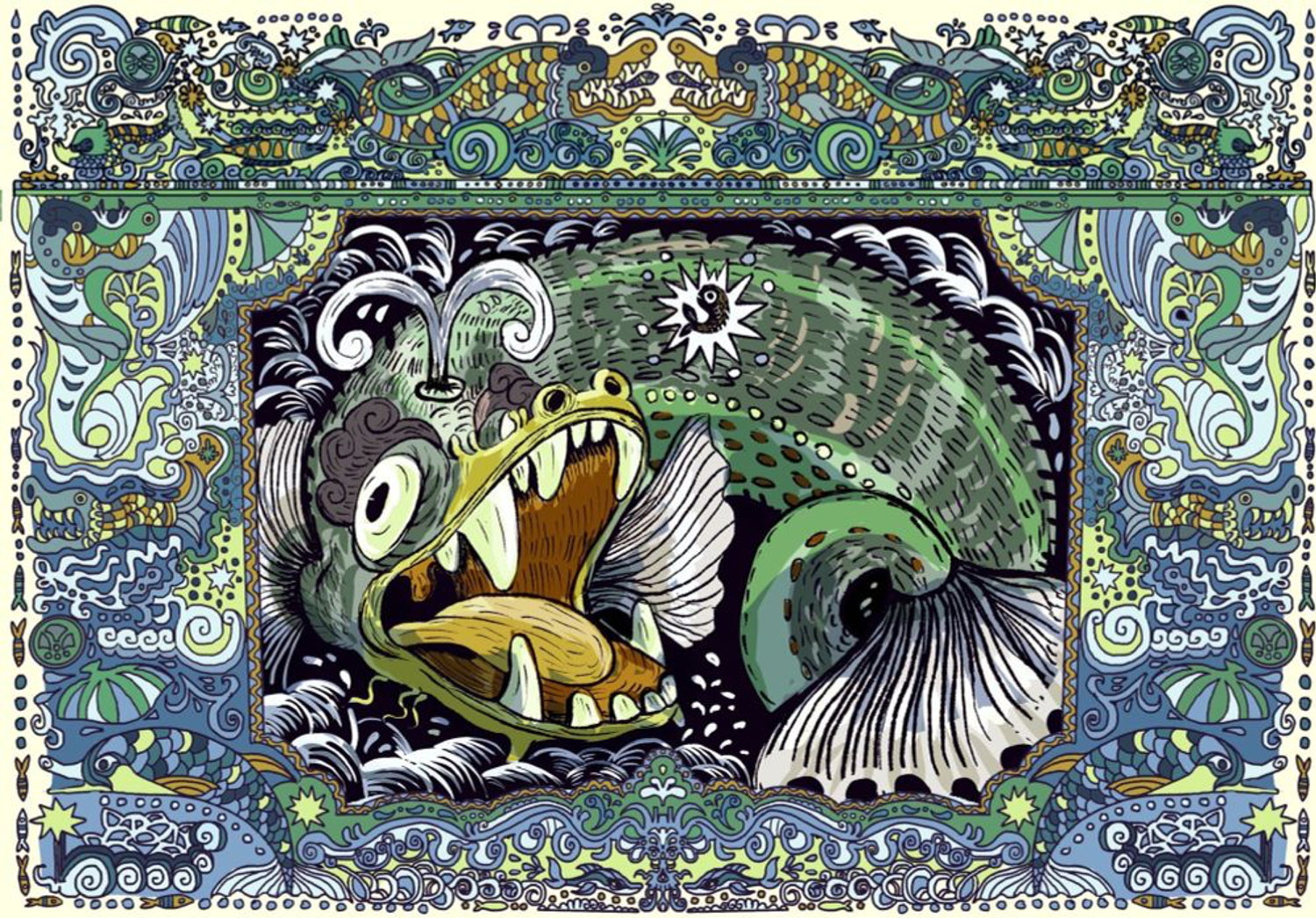

Walk us through your process. From concept to execution, what does it take to bring your pieces to life?
It often starts with a feeling, a thought, or even a saying. Most of the time, something just bounces around in my head for a while, and I just can’t shake it. After a while, that thought turns into a vision. Sometimes I end up drawing immediately, and other times it takes a lot of further rumination to figure it out. I usually get there at the end!
I don’t give in to pressure. I just tell myself that I want to capture what appears as much as I can.
If it were up to you, how would you like people to perceive your art? What messages do you wish to convey?
I hope I can make people feel everything that I was feeling while creating, but I know that’s not the case all the time. At the end of the day, my goal is to share this calm that I’ve found in chaos.
If anything, I want people to pause and really think about how there’s so much in the world we ignore: a creature, a flower, a monster under the bed, or a feeling that they’ve been hiding away. Sometimes, confronting these realities means getting to know ourselves and the world more.
Let’s get into some industry questions. What would you say is the biggest struggle about presenting your work as a Filipino artist? How about as a queer Filipino artist?
Discrimination exists everywhere, and sadly, people who mean no good can still be found in different fields. In the creative industry, not everyone will be open to your style, your personality, and even your identity. I think the saddest thing is the amount of exploitation that you can experience from employers because of your identity. It can be disheartening and even demoralizing to learn that you haven’t been paid properly or on time solely because of who you are.
I’m hoping we get to a time when this is no longer the case, where we start treating people the way they deserve to be, and put our personal preferences and/or issues aside when dealing with professional matters.
I agree! We can’t change the way of the world, but hopefully, people will evolve and realize we are all equal, regardless of our differences.
What about events? I’ve seen you participate in both local and international ones. How have those been? Can you share with us one project that you enjoyed the most?
Events are great! And I am lucky enough to find ones where the community and the crowd are truly welcoming. My favorite project so far was my graphic novel for the ShortBox Comics Fair last year called Aquatic Lives. It was an anthology that had three short stories about aquatic creatures experiencing survival, pain, and hope. I spent a lot of time researching both above and below water while scuba diving to create that book, and I think working on it helped solidify the kind of work I enjoy making. It was a good reminder of what it means to immerse yourself in your craft.
You mentioned that events you often find have a great reception due to the positive energy of the people in them. Would you say the same for the current queer creative community in the Philippines? What do you like most about it, and what do you think merits improvement?
Yes, I think most of the events I found are actually queer-centric or friendly, and most of the time I see the same people! I think a lot of us have been in the same spaces, online during the pandemic and in-person at the same conventions. As someone who grew up alone, it means so much that I am able to find people who understand me on a deeper level.
I do feel like there needs to be more spaces and events that don’t just revolve around selling. I’m all for supporting artists and giving us platforms to monetize our work, but having a third space for a community that mainly focuses on income instead of fostering connections definitely has an impact on how we relate to each other. Spaces that prioritize community building need to be built so that we can tackle and collectively address greater issues that affect us.
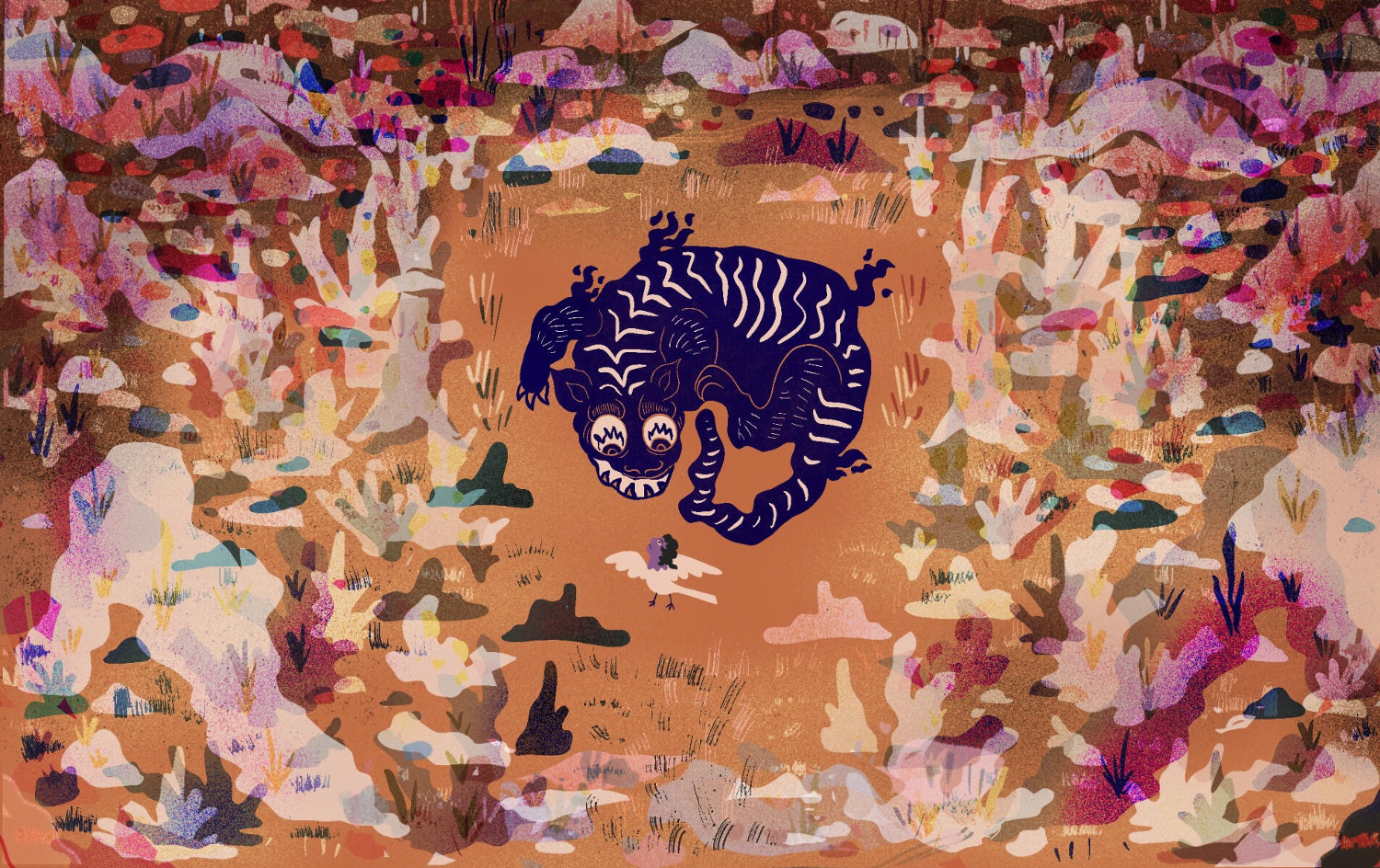

We’re nearing the end of this interview, so it’s time to manifest! Name your dream collaboration—it can be with an artist or collective. What do you like most about what they do? What would you like to create with them?
Oh, I want to take time to get back into printmaking! It is such a rich and expansive artistic process that has been present in our creative history. I admire the Association of Pinoy Printmakers for keeping it alive while continuously seeing its evolution. I also enjoy working with the folks at Manila Comics Fair as a comic creator myself, and I want to help carve a healthy space for the local komiks community.
Thank you for sharing! Lastly, can you share one lesson or advice you’ve picked up from your creative journey thus far? What would you like to tell young Filipino creatives?
One lesson that I’ve picked up for myself is to appreciate what I do. No one else can do that in the way that I do. I hope to share that feeling with everyone else in my community. I’ve lived part of my creative life just focusing on my ambitions and success, but I still felt alone. It was when I trusted myself to make connections that I started to feel both a sense of belonging and a greater sense of self-worth.
Don’t ever let anybody exclude you. You’re part of something greater. •
